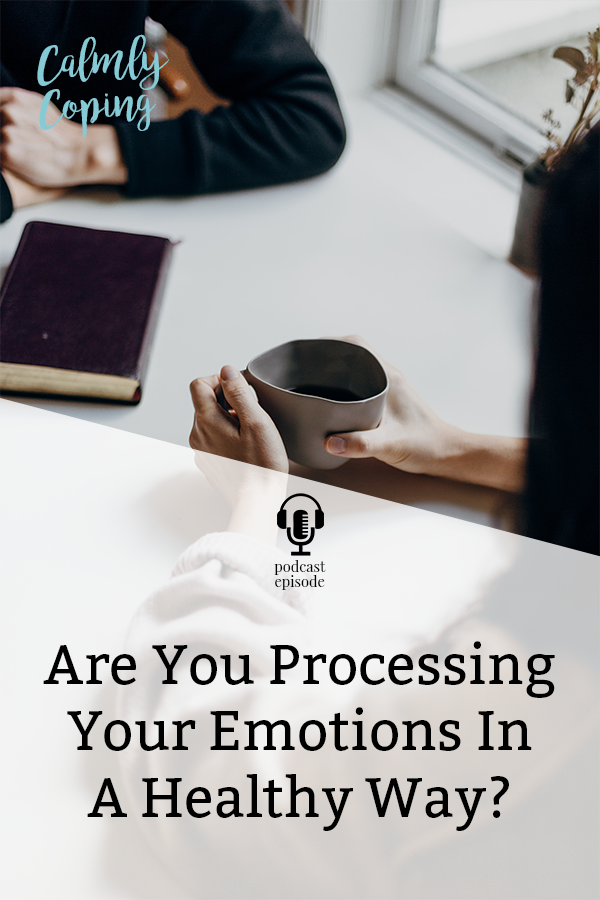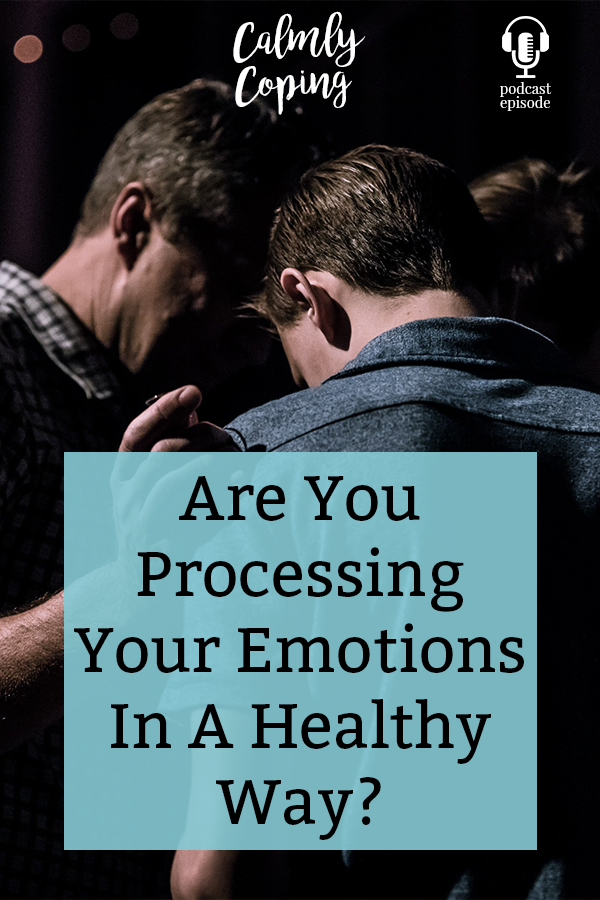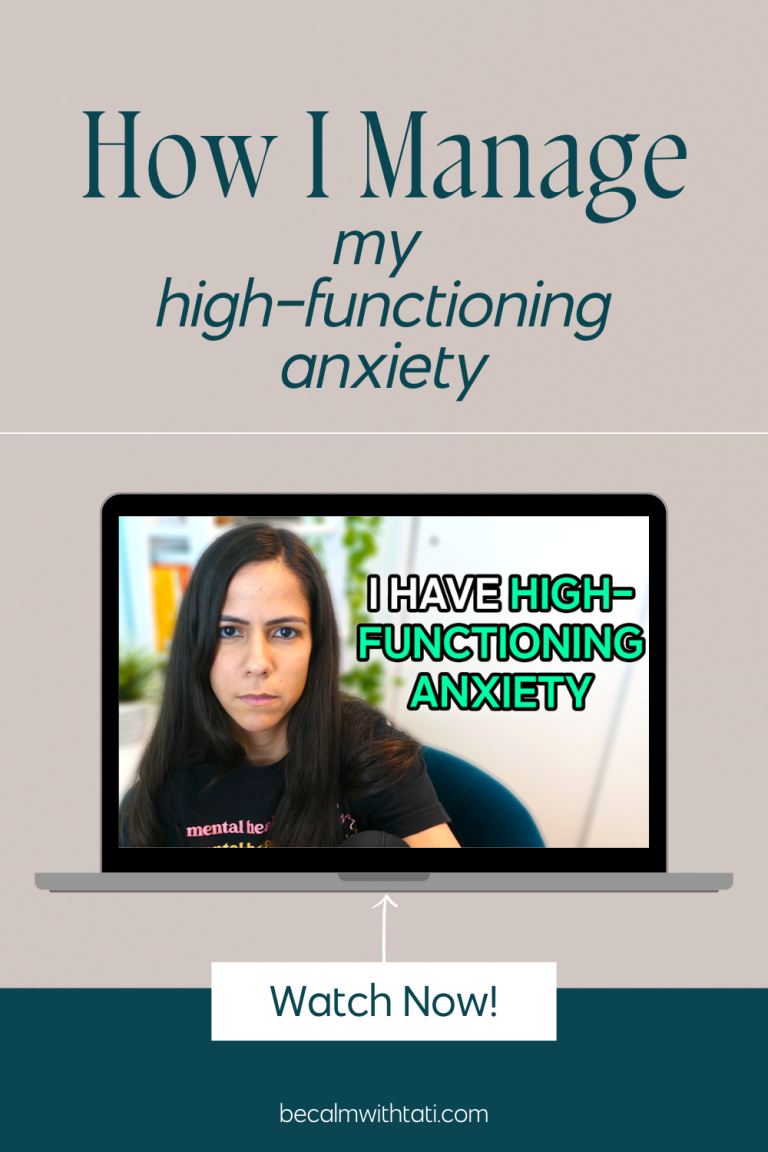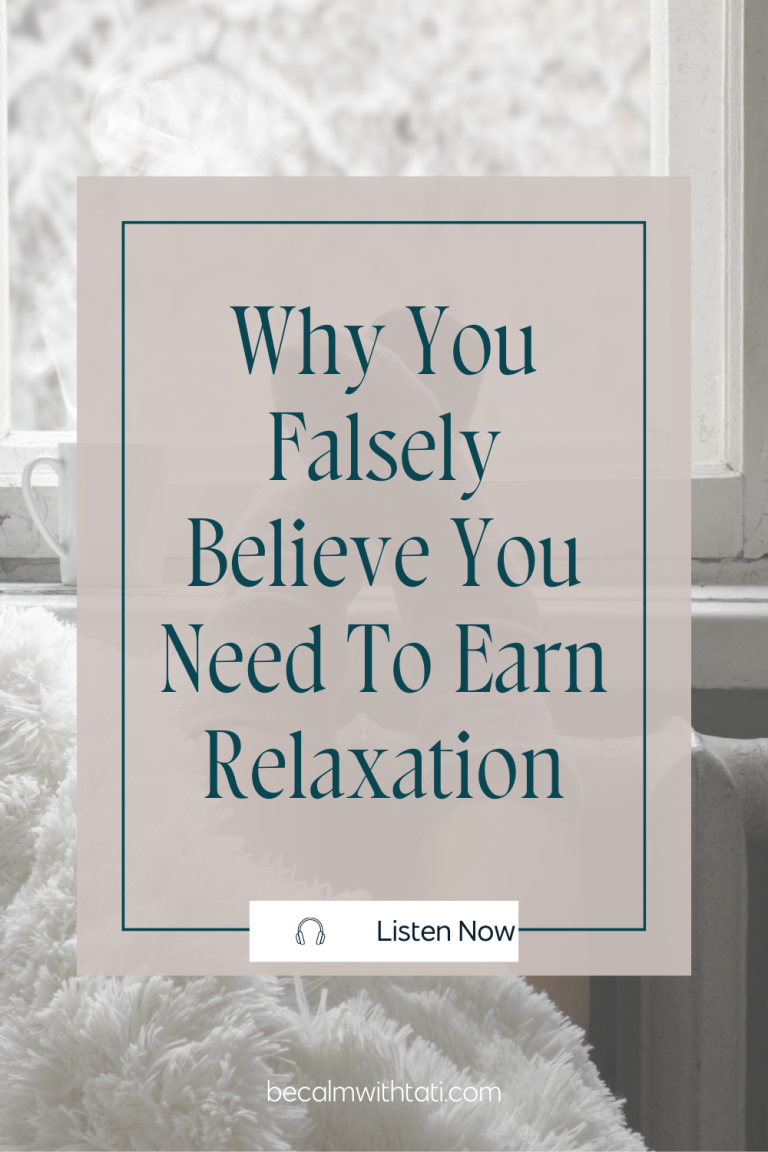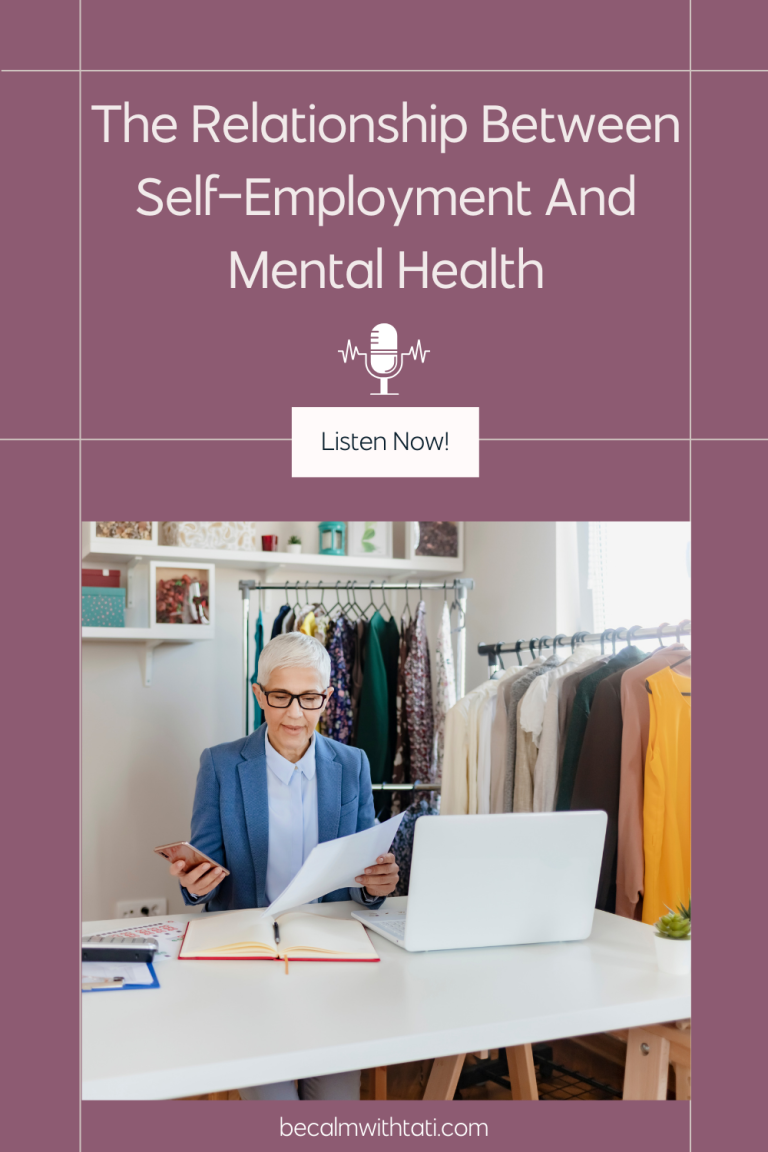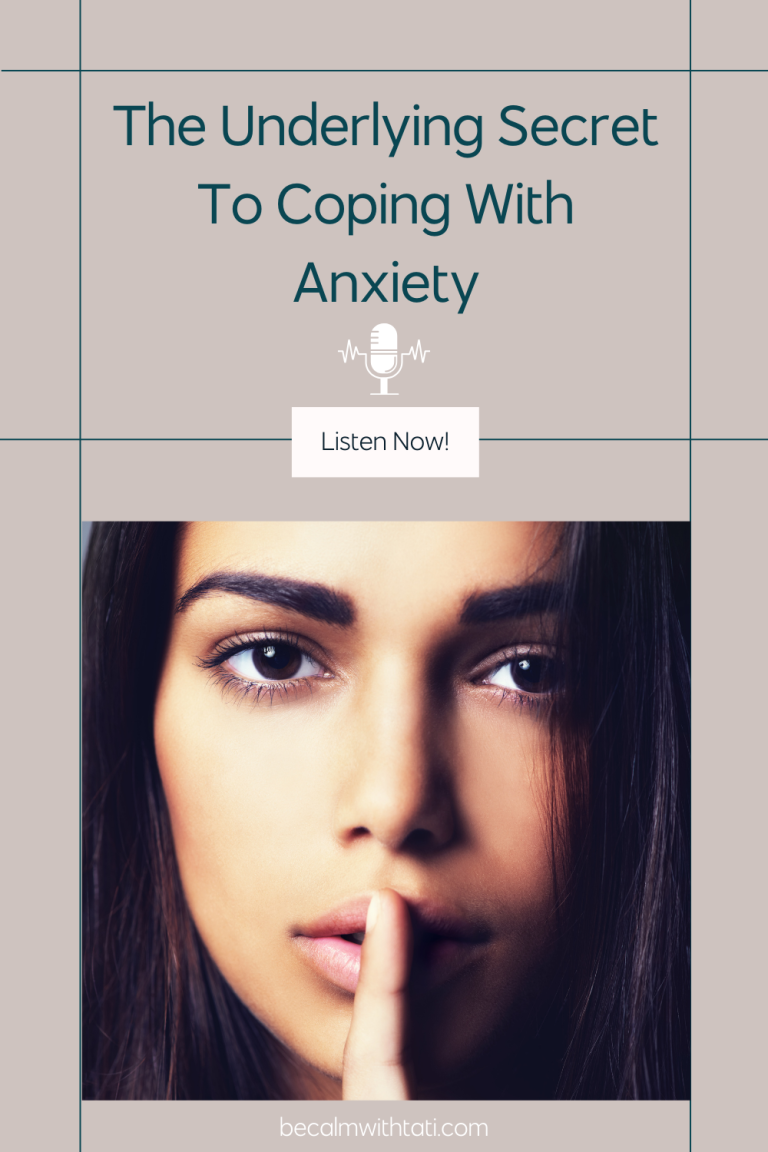Listen Now:
When you’re not processing your emotions in a healthy way, it can result in you staying stuck in emotions for hours, days, or even weeks! If you’re staying stuck in emotions for a long time, and you find that you don’t know what to do about it, or if you find that you are reacting out of difficult emotions impulsively, then this article is perfect for you.
In this article you’re going to learn:
- Four questions to ask yourself to help you determine if you’re processing your emotions in a healthy way or not.
- What leads to emotional buildup and unhealthy emotional processing.
- And my action tips to help you start processing your emotions in a healthy way.
Free Masterclass
What are the signs of Processing your emotions in an unhealthy way?
First, what is emotional processing? “Emotional processing allows specific and intense feelings to dissipate over time.”
Distracting yourself and reacting impulsively are the hallmarks of not processing your emotions in a healthy way.
Distraction is often the root cause of many behaviors such as avoiding conflict, always needing to be busy, and struggling with procrastination and perfectionism (just to name a few.) Whereas reacting impulsively can result in relationship conflict, and in making decisions that you later regret. Click here to learn more about eight signs that your emotions are controlling you.
The problem I often see is that many people don’t even realize that they are distracting themselves from difficult emotions, because they haven’t been taught how to properly process difficult emotions. And that’s okay, because I never used to know this stuff either! But once I learned it, it’s really changed the way that I view myself and how I treat myself.
The reality with anxiety is that it can often be a surface-level expression of many emotions under the surface that you aren’t acknowledging. So let’s get into the questions to ask yourself to help you determine if you’re processing your emotions in a healthy way or not.
1. Are you pushing down your emotions and ignoring them?
If you find yourself constantly brushing your emotions under the rug, and not acknowledging them, then you may not be properly processing your emotions. Maybe you find yourself feeling anxious, lonely, or sad, and you’re thinking, “this is just the way that I am.” You’re just continuing to push these emotions down and ignoring them and carry on with your day.
This can be a sign that you’re not processing your emotions in a healthy way because you’re not acknowledging them. You’re not giving yourself the opportunity to just look at your emotions and befriend them and experience them. Just acknowledging your emotions allows you to decrease the emotional intensity, and is the first step to properly processing difficult emotions.
2. Do you have an outlet to express and talk about your emotions?
This includes if it’s your journal. It’s so important to have an outlet to express and to talk about your emotions and your thoughts. And that’s because when your emotions aren’t acknowledged, and they stay under the surface, that’s when they tend to build up and that’s what results in unhealthy decisions and impulsive decisions.
Even just having an outlet like:
- Writing how you’re feeling in your journal
- Getting out how you’re feeling to somebody who’s going to be accepting and non-judgmental (a therapist, coach, friend, family member, or coworker)
There are really important ways to get out your emotions and talk about things. If you don’t have an outlet like this, it can be a sign that you’re not processing your emotions in a healthy way.
3. Are you accepting of all of your emotional experiences both pleasant and difficult?
Or are you hard on yourself for your emotions? So often we want to stay in those pleasant emotions, we want to stay in the happiness, the excitement. And we want to push away the difficult emotions.
The reality is that both pleasant and difficult emotions are both important to recognize and acknowledge, because they’re both signals from your mind and your body. So if you’re not accepting of all of your emotions, and if you’re just accepting the pleasant and pushing away the difficult, this can be a sign that you’re not processing your emotions in a healthy way.
4. Do you react impulsively out of emotions?
The reality is that reacting impulsively out of emotions happens to everybody. Nobody’s immune to this. But, if it’s something that you find yourself getting stuck in, and that’s happening frequently, and it’s starting to get on your nerves or it’s starting to negatively impact your relationships… then it may be a sign that you aren’t processing your emotions.
This can be because of emotional build up or being triggered by taking something personally. What can really help in the moment is to stop. That’s because when you’re acting purely out of emotions, your behaviors are often going to be impulsive. As a result, you need to take that space to stop and distance yourself from the trigger, if possible.
For example, if somebody is saying something that’s triggering you or making you feel really defensive, then you want to distance yourself from them. And then do something that will calm you physically, such as taking deep breaths or going for a walk. These are things that are going to help to give you that space that you need in order to calm down so that then you can return and make a more thought-out decision. And this is a healthier way of responding to those difficult emotions.
Take the First Step In Processing Difficult Emotions
Take the first step in processing your difficult emotions and identify one go-to outlet for your emotions and practice it once daily this week.
Some examples include journaling, mindfulness meditation, taking some deep breaths, closing your eyes and labeling your emotions mentally, or speaking to a therapist or close friend or family member who will listen and be supportive.
Put this tip into action and let me know how it helps in the comments below!
Free Masterclass
